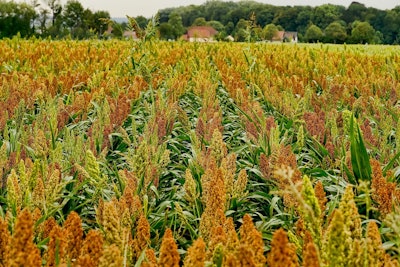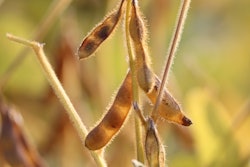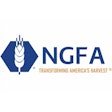
The USDA has announced the first round of funding for the Partnership for Climate-Smart Commodities (PCSC).
The PCSC’s goal is to promote projects that expand access and markets for climate-smart commodities. Programs will provide meaningful benefits to production agriculture and help farmers and ranchers fight climate change.
According to the USDA, the 70 selected projects will:
- Expand hundreds of markets and revenue streams for Climate-Smart Commodities
- Involve 50,000 farms encompassing 20 to 25 million acres of working land
- Remove 50 million metric tons of carbon dioxide
- Involve universities, major commodity groups, foreign groups, local and state governments, major food processing companies, major food brands and retailers
- Match on average over 50% of the federal investment with nonfederal funds
“America's farmers, ranchers, producers, and forested landowners have never shied away from tackling big challenges,” said Secretary of Agriculture Tom Vilsack.
“I know they are proud of what they do every single day and what they contribute to our great nation. And I know that they're also anxious to pass on the farm, the field, and the forest in better shape to the next generation.”
Large projects targeted at grain growers
This is an exciting time for climate-friendly agriculture, but with so many projects being launched, weeding through what will be important for grain production can be a challenge.
Below are four of the largest Climate-Smart Commodity projects that may one day affect the grain industry and how it operates.
1. Midwest Climate-Smart Commodity Program
The lead partner on this project is the Iowa Soybean Association (ISA). PCSC will provide ISA with $75 to $95 million to be administered by the Soil & Water Outcomes Fund (SWOF.) The program will run for five years and provide direct incentives to farmers operating in 12 states who implement practices resulting in positive environmental outcomes.
“By stacking together the many positive environmental outcomes of on-farm conservation practices, we deliver outcome-based payments to our farmer partners and extremely competitive environmental outcome pricing to our partners,” says Adam Kiel, managing director of SWOF.
“This innovative approach, connection to farmers across a large geographical area, and proven track record of results were a perfect match for a USDA Partnerships for Climate Smart Commodities investment.”
The funding will also be used to increase farmer enrollment in the program, along with outcome quantification, measurement, reporting and verification.
2. Horizon II: A Climate-Smart Future for Corn, Soybean, Livestock, and Renewable Natural Gas Production
Roeslein Alternative Energy and 14 other entities will administer up to $80 million in a five-year pilot project in Iowa and Missouri. The “Horizon II” project will incentivize improved management of nitrogen fertilizer and other inputs.
The program will create a carbon credit program to compensate producers and landowners for greenhouse gas reductions and carbon sequestration in the soil. “Horizon II” will also create a market-based program sporting renewable natural gas production through the anaerobic digestion of herbaceous biomass combined with manure that encourages cover cropping and grassland restoration.
“This transformational project will drive adoption of prairie strips and cover crops; create clean, renewable natural gas; improve water quality, address climate change and improve America’s energy independence,” noted Sean McMahon, executive director of the Iowa Agriculture Water Alliance.
3. National Sorghum Producers Partnerships for Climate-Smart Commodities Project
This project, run by National Sorghum Producers Association, will center specifically on enabling farmers to take advantage of added value under the California Low Carbon Fuel Standard (LCFS).
Direct payments will be provided to farmers who plant sorghum and introduce a suite of sustainability practices alongside a measurement and a quantification program. The goal is to gather data on various sustainability practices and meet the requirements of the LCFS.
“NSP’s project is building on significant work to enhance climate-smart agricultural production in sorghum-based crop rotation systems at scale,” said Adam York, sustainability director for the National Sorghum Producer.
“Through NSP’s Partnerships for Climate-Smart Commodities project, our efforts will reach new levels of collaboration to deliver on-farm resiliency and profitability throughout this sensitive and important region. This project will use selected climate-smart agricultural practices to educate, train, incentivize, and measure farming practices that reduce greenhouse gases, as well as brand and develop a market for climate-smart commodities."
4. Tyson Foods Climate-Smart Commodities Project
Tyson Foods, along with 22 other partners, is implementing a five-year project that will primarily focus on increasing cover crop and no-till practices for producers, providing incentives and verifications to improve producer livelihoods, increase carbon sequestration, and work to reduce greenhouse gas (GHG) emissions.
The program will also create a platform to enhance the transparency of sustainability and greenhouse gas emission data across the beef value chain.
“Over the course of the five years of the program, there is the potential to reduce an estimated 1.9 million metric tons of GHG emissions and increase climate-smart agricultural practices across approximately six million acres,” wrote John R. Tyson, executive vice president of strategy and chief sustainability officer, wrote in a The Feed Blog.
“Equally important, the project will generate new revenue streams for farmers and ranchers with a focus on underserved producers. We expect through the effort to put nearly $100 million back into the pockets of the farmers and ranchers within Tyson’s value chain.”
The $65 million in Climate-Smart Commodities’ funding will be combined with $42 million in funding from Tyson Foods and $49 million from other partners.
Projects could change agriculture's future
Though far from an exhaustive list, the four projects above show what type of climate-friendly practices the USDA's Partnership for Climate-Smart Commodities (PCSC) is promoting.
Grain handlers may soon have new types of crops like sorghum in their area as demand for low-carbon fuel increases.
Co-ops may find opportunities to provide cover crop seeds. And crop production may decrease as producers convert acres to grassland for renewable natural gas production.
.jpg?auto=format%2Ccompress&crop=faces&fit=crop&h=48&q=70&w=48)
















